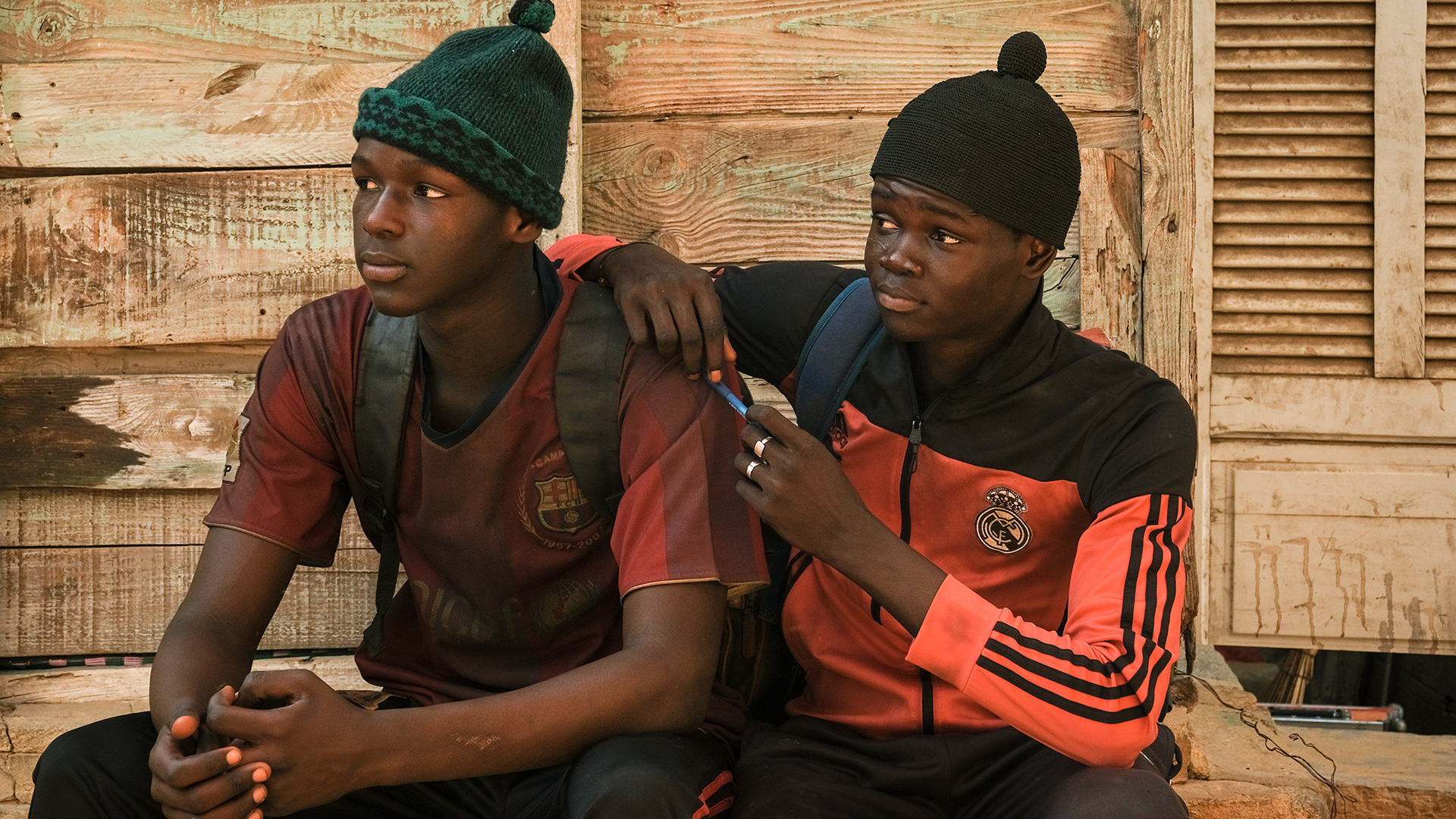Authentic, intense, hopeful—Io Capitano captivates from start to finish

Two Senegalese teens attempt a border-crossing journey—and quickly find themselves out of their depths—in Io Capitano. This Oscar-nominated odyssey goes to some intense places, Liam Maguren praises, constantly upping the stakes even when there appears to be no more stakes to up.
I remember my teenage hopes and dreams. I wanted to be a chef. Thought it’d be real chill and fun. But if foodie thrillers like The Bear and Boiling Point have taught us anything, that industry’s a stress pit full of screaming and self-loathing. How naïve I was.
Putting a mirror to my privileged face, the intensely captivating odyssey flick Io Capitano shows how that same naivety can put young Senegalese men into a seemingly endless gauntlet of life-or-death situations. The story centres on teenage cousins Seydou (Seydou Sarr) and Moussa (Moustapha Fall) who attempt a border-crossing journey from Senegal to Europe to realise their dreams of music stardom. Seydou’s mum begs her son not to go. A man at the markets yells at them not to go. But Moussa reckons it’ll be fine, so Seydou reckons it’ll be fine. Sure enough, it bloody well isn’t.
Not long into their adventure, Seydou and Moussa are being introduced to crooked cops and dodgy people-peddlers who are all-too-keen to drain their limited funds. It’s a bad start to what will be the ultimate test of their mentality, physicality, and spirit. Not that they’re prepared for what’s ahead; it doesn’t seem like things could get much worse because they’ve never really experienced “worse.”
If you’re familiar with writer-director Matteo Garrone’s previous work, like 2008’s Gomorrah or 2018’s Dogman, you’ll know the pair’s in for an increasingly painful journey through the Sahara Desert and across the Mediterranean Sea. Even if you’re not familiar with Garrone, his superbly calibrated craftmanship here should be easily recognisable as the work of one of Italy’s finest contemporary filmmakers.
In many ways, Garrone’s approach feels classical with the script’s one-track narrative and sumptuous locations captured beautifully by DOP Paolo Carnera. Avoiding modern impulses to slam political messages on the nose, Garrone instead remains laser focused on Seydou and Moussa’s journey, letting their adventure speak to the migrant experience.
Io Capitano goes to some intense places, constantly upping the stakes even when there appears to be no more stakes to up (it’s telling when a spot of slave labour comes as a relief to Seydou). There’s no telling if the pair will make it out alive or not, and the film’s sweat-inducing climax captivatingly keeps you in that uncertainty until its final, memorable shot.

Not even Sarr and Fall knew how it would end, Garrone choosing to keep the conclusion from them and shooting the film chronologically to help immerse the pair in the experience. Much like their characters, Sarr and Fall took this opportunity to discover the world, with Garrone using their inexperience (or, as he says in interviews, their purity) to fuel the performances and boost the film’s feeling of authenticity. And it works a treat, these first timers making a mighty on-screen impression alongside actual migrants who used their real-world experience in the film.
Nominated for Best International Feature at the Academy Awards, Io Capitano shares a lot with fellow nominee Society of the Snow. They’re both engrossing against-the-odds survival stories based on real events with cinematography built for the big screen. And while both films depict a certain level of suffering, there’s always a balm of hope pulsating through their runtimes.
There are, of course, significant differences (no cannibalism for Seydou and Moussa, thankfully), but there’s one thing in particular Io Capitano shows that very few films do—a strong bond between cousins. That may not mean much to many, but there are some who will relate deeply to that strength and hope to see more of it in cinema.



















